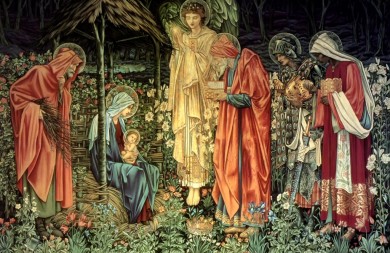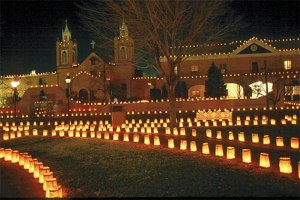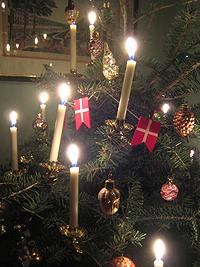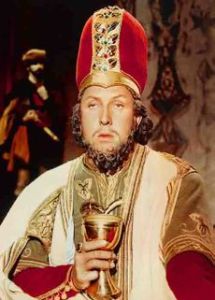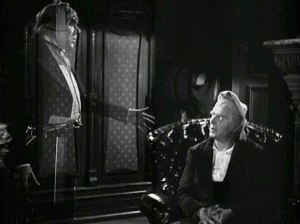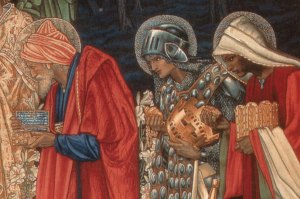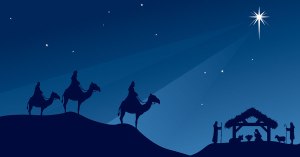Even though December 25th has passed, we are still in the Christmas season. In fact, traditionally in many European countries especially, the celebration of Christmas is extended from December 25th through January 6th, the so-called “12 days of Christmas.” January 6th is the Feast of Epiphany, which traditionally commemorates the visit of the Magi, or Wise Men to the infant Jesus. Matthew 2:1-12 gives the Scriptural account of the Magi’s visit to Jesus.….
2 “Now after Jesus was born in Bethlehem of Judea in the days of Herod the king, behold, wise men from the East came to Jerusalem, 2 saying, “Where is He who has been born King of the Jews? For we have seen His star in the East and have come to worship Him.” 3 When Herod the king heard this, he was troubled, and all Jerusalem with him. 4 And when he had gathered all the chief priests and scribes of the people together, he inquired of them where the Christ was to be born. 5 So they said to him, “In Bethlehem of Judea, for thus it is written by the prophet: 6 ‘But you, Bethlehem, in the land of Judah, Are not the least among the rulers of Judah; For out of you shall come a Ruler Who will shepherd My people Israel.”
7 Then Herod, when he had secretly called the wise men, determined from them what time the star appeared. 8 And he sent them to Bethlehem and said, “Go and search carefully for the young Child, and when you have found Him, bring back word to me, that I may come and worship Him also.” 9 When they heard the king, they departed; and behold, the star which they had seen in the East went before them, till it came and stood over where the young Child was. 10 When they saw the star, they rejoiced with exceedingly great joy. 11 And when they had come into the house, they saw the young Child with Mary His mother, and fell down and worshiped Him. And when they had opened their treasures, they presented gifts to Him: gold, frankincense, and myrrh. 12 Then, being divinely warned in a dream that they should not return to Herod, they departed for their own country another way.”
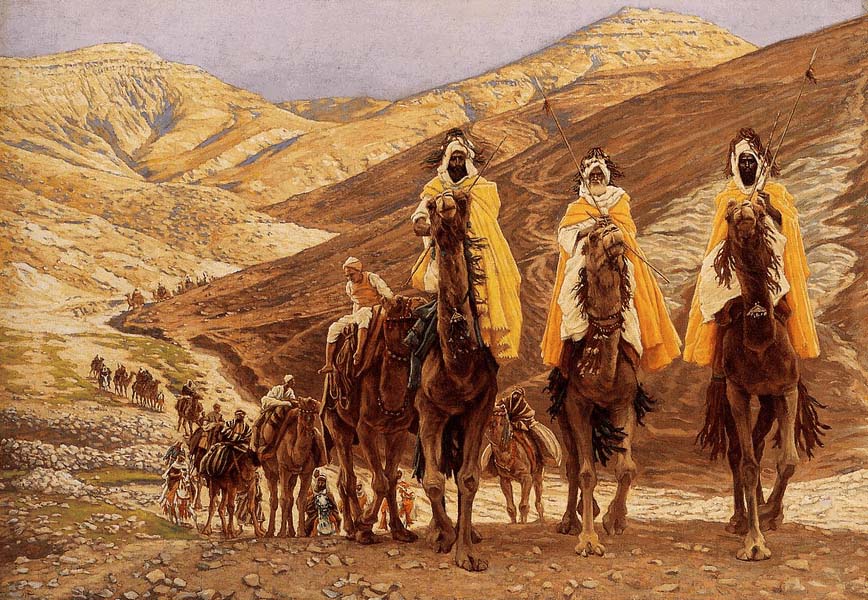
Well whether we call them the three kings, the wise men, the Magi, there are questions that seem to arise almost immediately when we hear this story. Our holy curiosity kicks in, and we begin to wonder. Who exactly were these visitors to the Christ child? Royalty, astronomers, astrologers, Zoroastrian priests? Where did they come from—after all “The East” is a rather vague geographical designation, isn’t it? Were there even necessarily three of them? No one is precisely sure as to the answer to these questions. But when the Magi arrive, the plot of the Christmas narrative thickens, as it were. We no longer have just that simple manger scene with Joseph, Mary, the animals, and maybe an adoring angel or two, with shepherds keeping their vigil from a respectful distance. We no longer have a manger at all in fact—Matthew 2:11 talks about these mysterious visitors coming into a house to worship the infant Jesus. Because they come later, whoever they are and wherever exactly they are arriving from, the Magi’s story allows us to address the question of how do we respond to the Christmas story. After the celebrations and observances of December 25th itself have died down, after that initial explosion of joy at the Savior’s birth—what comes next? The Magi offer us a model for how to respond to Christ for the rest of the year, and indeed for our whole lives. We see in them a reflection of the Great Commission, a consistent faithfulness, and an ability to surmount the interference of a fallen world. Finally, we can learn from the type of gifts that they bring. Simply put, what the Magi do, every time we revisit their remarkable story, is to point us back to Christ.
 Neapolitan presepe
Neapolitan presepe
Now I mentioned the Magi in relation to the Great Commission a minute ago. The Great Commission of course is Jesus’ last command to His disciples in the Book of Matthew—chapter 28:18-20 to be precise. The visit of the Wise Men represents the Great Commission in reverse. At the end of Matthew’s Gospel, Christ sends out His disciples to go and preach to all the nations, but here in Matthew 2 the nations come to Jesus, at the very moment of His birth! Now as I’ve mentioned, we don’t know the precise origin of these mysterious visitors, but we can probably assume that coming, as they do from “The East”, that they are not Jewish. Now in Luke’s Nativity narrative we see Jesus’ birth being proclaimed by the angels to the humble shepherds. Thus the Kingdom of God reaches across the socio-economic divisions of that ancient Jewish society. In the same manner, Matthew, with his account of the Magi’s visit, shows how the Kingdom of God reaches across national and cultural divisions. From the very start, because these foreign dignitaries have sought Christ out, Matthew wants to demonstrate to us that Jesus will be of significance not just for the Jews, and not just in Israel, but for the Gentiles, and for the whole world. The Savior’s birth has universal implications, and Christ comes to everyone, in the unique context of their particular culture and history. This fact is beautifully reflected when you study the nativity scenes prevalent around the Christian world during this season of Christmas. Now many of us probably have a nativity set in our homes, but I think it’s a safe guess that none of them would rival the size, splendor, and elaborate detail of many of the nativity scenes to be found in the Old World. Some of the Southern European nations in particular have a long and storied history of producing nativities which are timeless works of religious art and yet which also reflect the particular cultural traditions of those countries. The nacimientos of Spain, the creches of France, and the presepes of Italy all include such expected figures as the Holy Family, barn animals, shepherds, angels and the Magi. But they also feature peasants dressed in regional costumes, craftsmen, musicians, soldiers, pets, tavern-keepers…and often the architecture of the manger itself and other buildings is more European than Ancient Near-Eastern. The reason for all of these local alterations and additions goes deeper than mere artistic license or preference however. It represents for the artists a statement of belief—a belief that Christ is universal and so he comes to the Spanish, French, Italians, and all other peoples in a way they can understand, and in a unique manner befitting that particular culture. And people from all walks of society, from the most important, down to the most humble, are welcome at His nativity. The Magi thus point us to Christ, and specifically to the Great Commission. Long before the church is launched, before indeed Jesus’ ministry has even begun, representatives of the nations have come to adore the newborn Savior, who will one day give up His life for them, and for all peoples.
We also find in the Magi a model of consistent faithfulness, embodied by the way in which they patiently and diligently follow the Star which leads them to Bethlehem. Now of course at Christmas we have many visual reminders around us of this star which guided the Magi, starting perhaps most prominently with the star that many have atop their Christmas trees. Perhaps my favorite though is the candles in the window. I love driving by a house on a dark December night and seeing the light of those candles shining forth to pierce the winter shadows. Across many different countries and cultures, the candle has been used as an integral part of Christmas observances. For example in Denmark during the days before Christmas, candles are to be seen everyone, alleviating some of the gloom of days in which there may only be six hours of sunlight. Denmark actually uses more candles per capita than any other country in the world–and they are even added to the Christmas tree itself! In Ireland, candles are traditionally placed in windows on Christmas Eve to provide light for the Holy Family and welcome them, in contrast to the inn at which they were turned away in Bethlehem. I used to live in Texas, and there and elsewhere in the American Southwest it is customary at Christmas to display small lighted luminaries all around the house. These are candles set into paper bags, and in the darkness they flicker and glow in a most enchanting manner.
All of these Christmas candles serve, like the Star of Bethlehem, to remind us to turn our eyes towards Christ. They further remind us of the truth expressed in John 1—that Jesus is the True Light, who has entered the world to overcome the uncomprehending darkness. So the Magi’s patient quest to follow the star says much about their faithfulness and burning desire to seek out God in their midst. The Star is a fixed point of reference that allows them to orient their quest around it. By keeping their eyes set upon its heavenly light, they avoid becoming distracted, or straying off course. Now here the question can be raised—what is our star today? I believe it is Scripture. Even within the Gospel narratives of Jesus’ birth, in Matthew and Luke, we find Scripture repeatedly referenced, as the prophets of the Old Testament, Isaiah and Micah, are quoted in relation to the coming of Jesus. When we stay rooted in Scripture, it will again and again guide us back to Jesus, however far we may have strayed from Him previously. Jesus spoke on several occasions about the importance of the Word of God, and never more powerfully than in Matthew 24:35. There He proclaims to us “Heaven and earth will pass away, but my words will by no means pass away.” The Bible is permanent, it has endured through the ages, and it is God’s Living Word. Living, because through the Holy Spirit all Christians can understand and interpret it, and living because it is just as applicable a guide for us now as for the saints of old, and will continue to be so for all the centuries to come, until Christ returns. So as the Magi followed the star, which we see reflected atop our Christmas tree, or in the light of a window candle, we should also strive to follow that fixed, sure point of reference and guidance that Scripture provides for us in all areas of the Christian life. As Martin Luther so aptly phrased it, borrowing the language of the Nativity, “Scripture is the cradle in which the Christ child lies.”. Through God’s Word, we are led to Jesus most reliably and directly. It is our own Star of Bethlehem.”
But as we go through the story of the Magi there is an undeniably disturbing element which runs beneath—the role of the murderous King Herod. The black villain of the Christmas story, Herod is a figure who in many ways in strikingly modern. Long before megalomaniacal world leaders such as Stalin, Hitler, or Kim Jong Il, we have this wicked man, so blinded and myopic in his desire to hold onto political power by any means necessary. Instead of learning from the Magi’s devotion he only can think of how to use them as unwitting pawns in his paranoid quest to discover a potential rival for his throne. I see parallels between Herod and another figure, this one fictional, yet also instructive; Jacob Marley. Now anyone who has read Charles Dickens’ classic novella “A Christmas Carol” will recognize the character of Jacob Marley, the man who was once partner to Ebenezer Scrooge in their counting house. Marley, like Scrooge is a cold-hearted miser, who cares only for money and yet once he dies, he learns of the terrible error of his ways. He then revisits his old friend. Marley’s ghost warns Scrooge that his only hope for redemption is to become a more generous and compassionate person, one whose every action is not motivated by the desire for profit. Now at first, faced with Marley’s lamentations and remorse, Scrooge proclaims that his old friend was always a good business man. Marley, greatly disturbed, responds: “Mankind was my business. The common welfare was my business; charity, mercy, forbearance, and benevolence were all my business. The dealings of my trade were but a drop of water in the comprehensive ocean of my business!” Marley then goes on to regret his lack of vision, and perspective in life: “Why did I walk through crowds of fellow-beings with my eyes turned down, and never raise them to that blessed Star which led the Wise Men to a poor abode! Were there no poor homes to which its light would have conducted me!” Marley realizes that his obsession with the narrow pursuit of profit meant that he permanently missed his chance to make a difference with his wealth, and be a blessing to others. Marley however in Dickens’ fictional world does get a chance to warn his old friend, and thus play a part in the eventual redemption and changed nature of Scrooge. Herod meanwhile, despite his murderous threats and attempts to manipulate the devotion of the Magi is powerless to thwart the eventual and eternal plan of the Lord. Ironically enough in fact, the very efforts of Herod which drive Christ and His family to seek refuge in Egypt end up simply fulfilling Scriptural prophecies. Herod, for all of his evil desire to control events around him for his own purposes, ends up completely subservient to God’s greater plan. Thus the story of the Magi reminds us that no matter how the fallen world might strive against the work of the Lord, God’s purposes and plans will be accomplished. What lasting hope and surpassing peace there is in that knowledge!!
Finally we can learn from the Magi’s story by specifically taking note of the gifts that they bring. There is the gold—symbol of the kingship of Christ, the Messiah who has come in the line of David. Frankincense—a kind of incense used in worship, and a reminder of the Divinity of Christ. Myrrh, used in embalming, is symbolic of Jesus’ eventual death, a foreshadowing of the purpose for which He came into this world—to give up His life as a ransom for many. But beyond these immediately symbolic meanings for the three gifts of the Wise Men, what else can we say about them? They represent the best of what the Magi had—laid at the altar of the newborn Jesus. I don’t think I could let a discussion of the Magi pass without referencing the famous 1905 O. Henry short story “The Gift of the Magi.” Many of you may be familiar with this classic little work. It’s the story of Jim and Della, a young married couple who are short on money, and yet want so badly to express their feelings for each other with the perfect Christmas gift. So Jim sells his prize watch in order to buy a beautiful set of combs for Della, who has luxurious long hair. Only it turns out that Della has cut her hair short and sold it in order to purchase a fancy chain for Jim’s watch. The young lovers are heartbroken when they discover how they have sacrificed for each other—seemingly for naught. But the author offers some perspective on their situation with the story’s closing lines: “The magi, as you know, were wise men – wonderfully wise men – who brought gifts to the new-born King of the Jews in the manger. They invented the art of giving Christmas presents. Being wise, their gifts were no doubt wise ones, possibly bearing the privilege of exchange in case of duplication. And here I have lamely related to you the uneventful chronicle of two foolish children in a flat who most unwisely sacrificed for each other the greatest treasures of their house. But in a last word to the wise of these days let it be said that of all who give gifts these two were the wisest. Of all who give and receive gifts, such as they are wisest. Everywhere they are wisest. They are the Magi.” As the O. Henry story illustrates, the last lesson that the Magi teach us to offer the best of ourselves, whatever gifts or talents we have to Christ. We cannot hold back, if we are going to serve the Lord—we must give Him everything.
So when we look at the story of the Magi, we should quite simply live in imitation of them. Remember that Christ has come for all people and for all the nations, a fact these same Magi acknowledged at the moment of His birth. Like they followed the fixed light of the star, let us follow the fixed and constant light that Scripture provides us, a light which will always lead us back to Christ. Just as Herod failed to thwart them, let us never fear the machinations of the wicked, which are ultimately powerless to derail the true plans and purposes of the Almighty. So let us have confidence and trust in the Lord, and like the Magi, follow the star, and bring our gift, to serve the Lord Jesus Christ. And as we do, may our actions, lifestyle, and our witness serve to guide others to Him as well. Amen!
